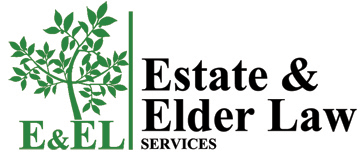Newsletter Archive
January 2024 Newsletter
Small business owners will have yet one more thing on their to-do list now the Corporate Transparency Act (CTA) is in effect. Around 30 million small businesses will be impacted by the law, which establishes a federal database of the reporting companies that will be accessible to certain authorities and organizations.
December 2023 Newsletter
Transfer on death or TOD accounts, sometimes known as Payable on Death or POD are form beneficiary designations. Beneficiary designations are most commonly known to us in life insurance. Every life insurance policy has a beneficiary. We are all familiar with beneficiary designations for our 401K or IRA.
November 2023 Newsletter
Two times you may need to appeal a decision for the denial of Medicare benefits is when you are in the nursing home or in the hospital. There is no time to consult with a lawyer. Indeed, lawyers are of little use when you or your family member are hurting and need treatment.
October 2023 Newsletter
Eighty million Americans will be enrolled in Medicare by 2030. That is the major health care plan for seniors and those under 65 with long-term disabilities. We focus in this note is the increasing costs for Medicare and taking advantage of Open Enrollment in Medicare, which started October 15th.
September 2023 Newsletter
The Centers for Medicare and Medicaid Services (“CMS”) released a list of the first ten drugs whose prices will be subject to negotiation for Medicare patients, a plan implemented under the Inflation Reduction Act (“IRA”). Not to be cynical, but like any venture the government is involved in, it is hard to make sense of it.
August 2023 Newsletter
Family dynamics can change drastically when a parent or spouse dies. In particular, if a surviving spouse remarries, the question of what happens to the family home can make dynamics among the children and the new spouse even more complicated.
July 2023 Newsletter
We do not usually write about technical income tax issues in our newsletter, but Revenue Ruling 2023-2 has caught the attention of a lot of our clients. We have had some clients contact us about changing their estate plans citing Rev. Rul. 2023-2 when it is inapplicable to them.
June 2023 Newsletter
A fiduciary is that person you are going to trust to make decisions when you are no longer available. The ultimate purpose of estate planning is family harmony. And selecting a fiduciary is often the most difficult part.
May 2023 Newsletter
As estate planners, we increasingly have clients that are “Senior Orphans.” A Senior Orphan is someone without a spouse, child or friend on whom they can depend. The spouse or partner could already be incapacitated. Children may be alienated, incapacitated, unavailable or geographically remote.
April 2023 Newsletter
A Pennsylvania court ruled that the son of a Medicaid applicant must pay an elder law firm’s fee for successfully negotiating a penalty period reduction because the son would otherwise be responsible...
March 2023 Newsletter
Most people do not know the difference between tax avoidance and tax evasion. There is a big difference in both. And in the consequences.
January 2023 Newsletter
Undue Influence is when someone pressures another in such a way that the person being influenced is not acting by their own free will; they are being coerced into taking a certain action. Undue influence often arises when a friend family member falls ill. For example, mom has been diagnosed with cancer...
December 2022 Newsletter
As we age, the likelihood of mental incapacity increases. Without doubt, our bodies and minds deteriorate as we age. Mental incapacity could result from dementia, stroke, brain injury, or other illness. What is mental incapacity and in what ways can you plan to be best prepared for it?
November 2022 Newsletter
Years ago when I was young to Elder Law I got a phone call from a client’s wife. Her husband had fallen and had been in the hospital for five days. When he went to the rehabilitation facility, they thought that Medicare...
October 2022 Newsletter
We are often asked, “Will Medicaid come after us?” “Will Medicaid take the house?” “Won’t Medicaid get everything?” While the reach of the State can be long, there are limits.
September 2022 Newsletter
While enrollment in Medicare Advantage plans, also known as Medicare C, has doubled over the past decade, there are some drawbacks with this form of Medicare.
August 2022 Newsletter
Medicare does not receive a lot of attention from lawyers in private practice for several reasons. One, the opportunity for effective advocacy is limited. When someone needs care, they need it immediately, and even the fastest law suits take days to prepare and file. Having a team of lawyers expedite the gathering of facts, documents, affidavits and pleadings in a few days is enormously expensive.
July 2022 Newsletter
Patient self-determination is based upon the right of an individual to possession of control of his own person, free from all restraint or interference of others. Union Pac. Ry. V. Botsford, 141 U.S. 250 (1891). The doctrine of informed consent forms the basis of patient participation before treatment can begin...
June 2022 Newsletter
Trusts and limited liability companies (LLCs) are both legal vehicles to be used to manage incapacity, protect assets, minimize taxation, and avoid probate.
May 2022 Newsletter
Medicare is a federal program that provides medical coverage to certain individuals – those over age 65, younger folks with disabilities, and people with End Stage Renal Disease. This coverage is critical to get those populations needed care.

